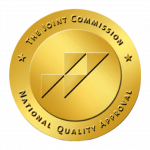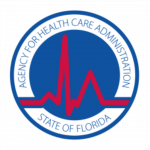These four years will include self-discovery, new friendships, and experiences. Experiencing the world as an adult for the first time is just a few perks many people discover when going to college. However, this time also comes with many new stressors that people have never experienced. While adjusting to these new surroundings with added newfound independence. If you’re not fond of drugs, the college will be your first go around. The most common addictions of college students may surprise you.
Many college students experiment with drugs and alcohol because it is readily available on campus and in dorms. Usually, parties are flush with alcohol and a variety of recreational drugs. Some take drugs and drink alcohol to relax and unwind after a stressful day. There are also drugs college students take to stay awake, study, and perform better. Harm would like to educate you on the most common addictions of college students.
Alcohol
Alcohol is the number substance among college students. According to National Survey statistics, more than 60% of full-time students had drunk alcohol, with a stunning 39% reporting heavy drinking in the previous month. Remarkably, college enrollees have greater updated alcohol usage than their age-matched non-college counterparts.
Heavy drinking results in dangerously high blood alcohol levels as well as illicit substance usage. The difficulties connected with starting university life, such as distance from family members, engagement in new social networks, and increasing scholastic stress, may all directly contribute to higher alcohol intake.
The majority of college students who use marijuana on a regular basis have doubled between 2007 and 2014. According to the 2016 National Survey on Drug Use and Health, 20% of full-time college students used cannabis in the previous month. There is substantial evidence that excessive cannabis usage has a poor impact on memory and cognition in the short term.
It also has a negative influence on educational and medical outcomes on university campuses. Cannabis usage becomes more likely during the college career, with some studies showing a rise in popularity with each passing year.
Prescription Drugs
Prescription drug abuse is on the rise among college students. poor academic achievement and risky conduct are side effects of prescription drug misuse. Students who abused pain prescriptions had a poorer GPA. Those using the prescription stimulants and anxiolytics mentioned using additional substances and engaging in dangerous driving behaviors.
Students who used prescription stimulants were more inclined to partake in polysubstance abuse use, illegal acts, blackouts, and side effects relative to other drug users. No studies have investigated the relationship of these issues with the individuals’ level of worry about their drug use or their willingness in obtaining treatment.
Ecstasy
MDMA/Ecstasy consumption statistics among college students increased from 2% to 5% between 2007 and 2016. Furthermore, 9% of university students report taking ecstasy at some time in their life.
Polydrug usage is common among Ecstasy users, who combine MDMA with other drugs such as marijuana, alcohol, inhalants, LSD, cocaine, and heroin. Sadly, polydrug use including Ecstasy is extremely harmful. Causing seizures, hallucinations, anxiety attacks, exhaustion, cardiac arrest, and severe rises in body temperature all being possible.
Cocaine
While cocaine is the last substance on this list, college students still partake in it frequently. Cocaine is an illegal stimulant that comes in the form of a white powder that is inhaled through the nose. Despite being perceived as a “rich man’s drug” in the media, cocaine usage rates have climbed from 2.9 percent in 1996 to 5.1 percent in 2007. Overall, it is estimated that 4 – 13% of university students used cocaine at least once in their lifetime.
Get Help with the Harm Reduction Center
Harm Reduction Center located in Boynton Beach, Fl is here to assist you throughout the entire recovery process. We provide all forms of outpatient treatment programs, as well as aftercare options for anyone suffering from addiction. Contact us now to learn more about our treatment center in Boynton Beach, FL.














